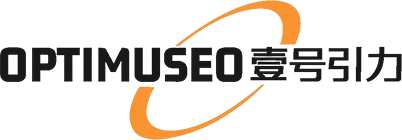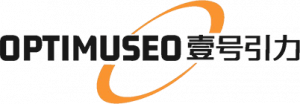The Penguin algorithm is a crucial part of Google's search engine algorithm that focuses on identifying and penalizing websites that engage in manipulative link building practices. It was first introduced in 2012 and has since undergone several updates to ensure that it effectively targets and penalizes websites that violate Google's quality guidelines. The primary goal of the Penguin algorithm is to promote fair and ethical link building practices by rewarding websites that have earned high-quality, natural backlinks.
The Penguin algorithm works by analyzing the quality and relevance of the backlinks pointing to a website. It looks for patterns of unnatural or manipulative link building, such as excessive use of keyword-rich anchor texts, links from low-quality or irrelevant websites, and participation in link schemes. Websites that are found to be in violation of these guidelines may be penalized by a drop in their search engine rankings or even removal from the search results altogether. Understanding the Penguin algorithm is essential for any website owner or digital marketer who wants to maintain a strong online presence and avoid potential penalties.
Importance of Quality over Quantity in Link Building
In the world of link building, quality should always take precedence over quantity. While it may be tempting to pursue as many backlinks as possible in an effort to boost a website's search engine rankings, the reality is that a few high-quality, relevant backlinks can have a much greater impact than a large number of low-quality links. Quality backlinks are those that come from authoritative, trustworthy websites within the same industry or niche. These links are seen as an endorsement of a website's credibility and can significantly improve its search engine rankings.
On the other hand, low-quality backlinks from spammy or irrelevant websites can actually harm a website's reputation and search engine rankings. Google's Penguin algorithm is designed to identify and penalize websites that engage in manipulative link building practices, so it's crucial to focus on building high-quality, natural backlinks. This can be achieved through creating valuable, shareable content, reaching out to industry influencers and thought leaders, and participating in relevant online communities and forums. By prioritizing quality over quantity in link building efforts, website owners and digital marketers can ensure long-term success and avoid potential penalties from search engines.
Incorporating Natural and Relevant Anchor Texts
When it comes to link building, the anchor text used for a backlink plays a crucial role in determining its quality and relevance. Anchor text is the clickable text in a hyperlink, and it provides context for both users and search engines about the content of the linked page. In the past, it was common for website owners to use exact match keywords as anchor texts in an effort to boost their search engine rankings. However, Google's Penguin algorithm now penalizes websites that engage in excessive use of keyword-rich anchor texts, as it is seen as a manipulative link building practice.
Instead, website owners should focus on incorporating natural and relevant anchor texts that accurately describe the linked page's content. This can include using branded anchor texts, partial match keywords, or even generic phrases that provide context for the linked page. By diversifying anchor texts and using them in a natural, organic manner, website owners can avoid potential penalties from search engines and improve the overall quality of their backlink profile. It's important to remember that the primary goal of anchor texts should be to enhance user experience and provide valuable context for both users and search engines.
Avoiding Black Hat Link Building Techniques
In the world of SEO, there are two main categories of link building techniques: white hat and black hat. White hat techniques are those that adhere to Google's quality guidelines and focus on earning high-quality, natural backlinks through ethical means. On the other hand, black hat techniques are those that attempt to manipulate search engine rankings through deceptive or unethical practices. These can include buying links, participating in link schemes, and using automated tools to create low-quality backlinks.
Black hat link building techniques may provide short-term gains in search engine rankings, but they ultimately put websites at risk of being penalized by Google's Penguin algorithm. Websites that are found to be engaging in manipulative link building practices may experience a drop in their search engine rankings or even removal from the search results altogether. It's crucial for website owners and digital marketers to avoid black hat link building techniques at all costs and instead focus on earning high-quality, natural backlinks through white hat methods. This can include creating valuable content, reaching out to industry influencers, and participating in relevant online communities.
Monitoring and Disavowing Toxic Backlinks
In the world of link building, not all backlinks are created equal. Some backlinks can actually harm a website's search engine rankings and reputation, particularly if they come from low-quality or spammy websites. These toxic backlinks can be identified through regular monitoring of a website's backlink profile using tools such as Google Search Console or third-party SEO software. Once toxic backlinks have been identified, it's crucial to take action to disavow them and prevent them from negatively impacting a website's search engine rankings.
The process of disavowing toxic backlinks involves submitting a disavow file to Google through Google Search Console. This file contains a list of URLs from which a website owner wishes to disassociate their website. By disavowing toxic backlinks, website owners can signal to Google that they do not want these links to be taken into account when assessing their website's authority and relevance. This can help prevent potential penalties from Google's Penguin algorithm and ensure that a website's backlink profile remains high-quality and natural.
Building Relationships for Organic Link Building
One of the most effective ways to earn high-quality, natural backlinks is through building relationships with industry influencers, thought leaders, and other authoritative websites within the same niche. By establishing genuine connections with others in the industry, website owners can increase their chances of earning valuable backlinks through guest blogging, collaboration on content projects, and other mutually beneficial opportunities. This approach to link building focuses on creating valuable, shareable content that naturally attracts backlinks from authoritative websites.
Building relationships for organic link building involves reaching out to industry influencers through social media, email outreach, and networking events. It's important to approach these relationships with authenticity and a genuine interest in providing value to others in the industry. By focusing on creating valuable content and fostering genuine connections with others, website owners can earn high-quality backlinks that enhance their search engine rankings and reputation. This approach also aligns with Google's quality guidelines and helps protect websites from potential penalties from the Penguin algorithm.
Adapting to Future Algorithm Updates
As with any aspect of SEO, it's crucial for website owners and digital marketers to stay informed about future algorithm updates and adapt their link building strategies accordingly. Google's algorithms are constantly evolving to better serve users and provide relevant, high-quality search results. This means that link building techniques that were effective in the past may no longer be as impactful in the future. By staying informed about future algorithm updates and industry trends, website owners can ensure that their link building strategies remain effective and compliant with Google's quality guidelines.
Adapting to future algorithm updates involves staying informed about industry news, attending SEO conferences and webinars, and participating in relevant online communities. It's also important to regularly review a website's backlink profile and make adjustments as needed to ensure that it remains high-quality and natural. By staying proactive and adaptable in response to future algorithm updates, website owners can maintain a strong online presence and avoid potential penalties from search engines such as Google's Penguin algorithm.
In conclusion, understanding the Penguin algorithm is essential for any website owner or digital marketer who wants to maintain a strong online presence and avoid potential penalties from search engines such as Google. By prioritizing quality over quantity in link building efforts, website owners can ensure long-term success and avoid potential penalties from search engines. Incorporating natural and relevant anchor texts is crucial for enhancing user experience and providing valuable context for both users and search engines. Avoiding black hat link building techniques at all costs is crucial for maintaining a strong online presence and avoiding potential penalties from search engines such as Google's Penguin algorithm. Monitoring and disavowing toxic backlinks is essential for preventing potential penalties from Google's Penguin algorithm and ensuring that a website's backlink profile remains high-quality and natural. Building relationships for organic link building is one of the most effective ways to earn high-quality, natural backlinks through guest blogging, collaboration on content projects, and other mutually beneficial opportunities. Adapting to future algorithm updates involves staying informed about industry news, attending SEO conferences and webinars, and participating in relevant online communities. By staying proactive and adaptable in response to future algorithm updates, website owners can maintain a strong online presence and avoid potential penalties from search engines such as Google's Penguin algorithm.



